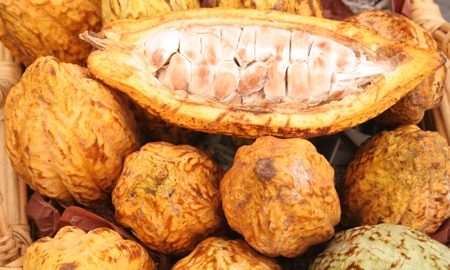For something like 53 per cent of the people, it couldn’t be any clearer: the land is their living. But in recent years, this critically important sector accounting for 38 per cent of the state’s total GDP has dramatically boosted its economic heft thanks to locally-based initiatives involving the processing and transformation of raw materials that have given rise to a thriving agro-industrial sub-sector.
The star performer is, of course, coffee. Chiapas is Mexico’s top producing region and all but a fraction those aromatic beans – to the tune of 560,000 tonnes per year – gets exported to the US, Europe or Japan, notes Governor Juan Sabines. “Mexicans really aren’t great coffee drinkers. Maybe we should try harder to encourage internal demand,” he quips. The southern state is also the origin for the bulk of the organically grown coffee that has made Mexico the world’s leading supplier of this product.
Governor Sabines points out that authorities have taken concrete measures to encourage private initiatives specialising in the transformation of raw materials to add value to them. High on the list of success stories is Mexico’s sole facility for producing freeze-dried instant coffee, a product that has seen demand growing by 10 per cent annually. In a related move, Chiapas has stepped up its programme of creating and enlarging plantations of African oil palms. Some of their oil ends up at a local plant managed by the multinational Nestle, where it is processed into a popular brand of coffee creamer. The palm nut’s crushed kernels also yield a non-edible oil that has become an essential ingredient in many soaps and cosmetics.
Even with a third of the state technically classified as jungle, there is enough open range and cleared land (3 million hectares) left over to allow Chiapas become Mexico’s third-ranked source of prime beef cattle, grazing 3.8 million head in any given year. With an output of only 400 million litres per year, Chiapas cows make only a slight impact in the national statistics, but some of their milk is destined for the above-mentioned coffee creamer facility.
The list of primary agricultural products offers diversity enough to make the statisticians dizzy in both in the everyday categories – such as poultry, honey, cocoa, bananas, peanuts and commercial fishery – as well as more deep-niche items destined for the export market.

0 COMMENTS